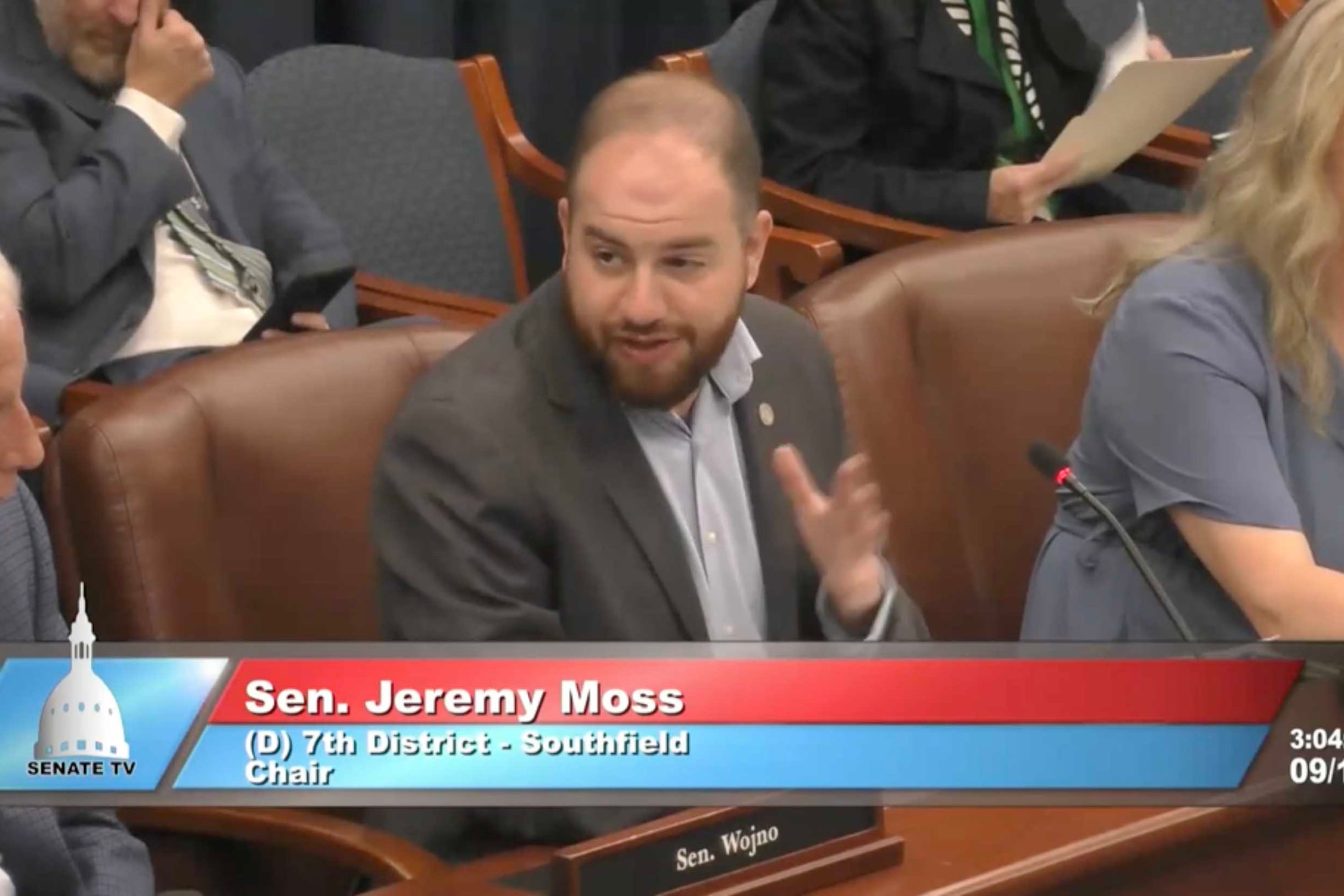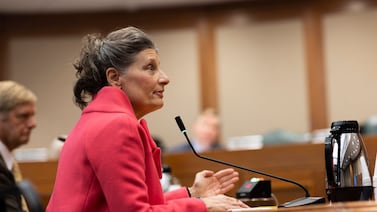Votebeat is a nonprofit news organization reporting on voting access and election administration across the U.S. Sign up for Votebeat Michigan’s free newsletter here.
Intentionally lying about elections could draw a fine under a new bill proposed by Michigan Senate Democrats.
A bill reintroduced by Sen. Mary Cavanagh, a Democrat from Redford Township, would impose a $1,000 fine on anyone who knowingly lies about elections or a voter’s eligibility. Employers who had someone working for them “for election-related purposes” violate the provision — such as a lobbyist who suggests certain groups aren’t eligible to vote early — could face a fine of up to $10,000.
The goal is to deter election-related misinformation in a critical swing state, Cavanagh said during a Senate Elections and Ethics Committee hearing Wednesday. Such efforts “can cause confusion, reduce voter turnout, and ultimately undermine the legitimacy of our electoral system,” she said.
Last fall, activists including Elon Musk seized on a misleading claim that Michigan has more voters than eligible residents to suggest that something was wrong with the state’s voter rolls. The claim made significant ripples on social media, but it’s the same claim that has been debunked extensively by the state as well as independent experts.
Cavanagh’s proposal would target only those who “maliciously” spread false information, she said.
“We worked very closely with the ACLU as well as the Secretary of State’s office, the AG and municipal government to make sure we’re not infringing on anyone’s rights or someone just passing information to their neighbor,” Cavanagh said.
But others fear how such a law would be enforced. Sen. Ruth Johnson, a Republican from Holly and the minority vice chair of the Senate Elections and Ethics Committee, said she applauded the intent but that she didn’t feel “it represents really a good solution.” Johnson, a former secretary of state, said in the hearing that she believes the legislation “could be enforced in a very partisan, politically motivated way.”
Additional bills heard by the Elections Committee on Wednesday included two from Sen. Jeremy Moss, a Democrat from Southfield, aimed at people who circulate petitions and collect signatures on them for prospective ballot proposals. The bills would ban the practice of paying circulators for each signature, and would require circulators to read a summary of petitions to would-be signers or allow them to read it themselves.
“Ballot proposals should be able to stand on their own merit instead of a misleading description or another deceptive tactic to gain support,” Moss said. “Other states have put similar markers out there to restore honesty when petition circulators are talking about their ballot proposal.”
Another bill, from Democratic Sen. Jeff Irwin of Ann Arbor, would allow people who sign the same petition twice to have their signature counted — but only once — toward the minimum requirement.
Each of the four bills is identical to legislation introduced late last year. Those bills passed the Senate in December, but they stalled in the House during a lame duck session that saw little progress on any issue.
The bills passed this year with support from the five Democrats on the committee. Johnson voted against each bill, while Sen. Ed McBroom, a Republican from Waucedah Township, voted “pass” on each. The bills now move to the full Senate, where they are likely to pass again.
Hayley Harding is a reporter for Votebeat based in Michigan. Contact Hayley at hharding@votebeat.org.




